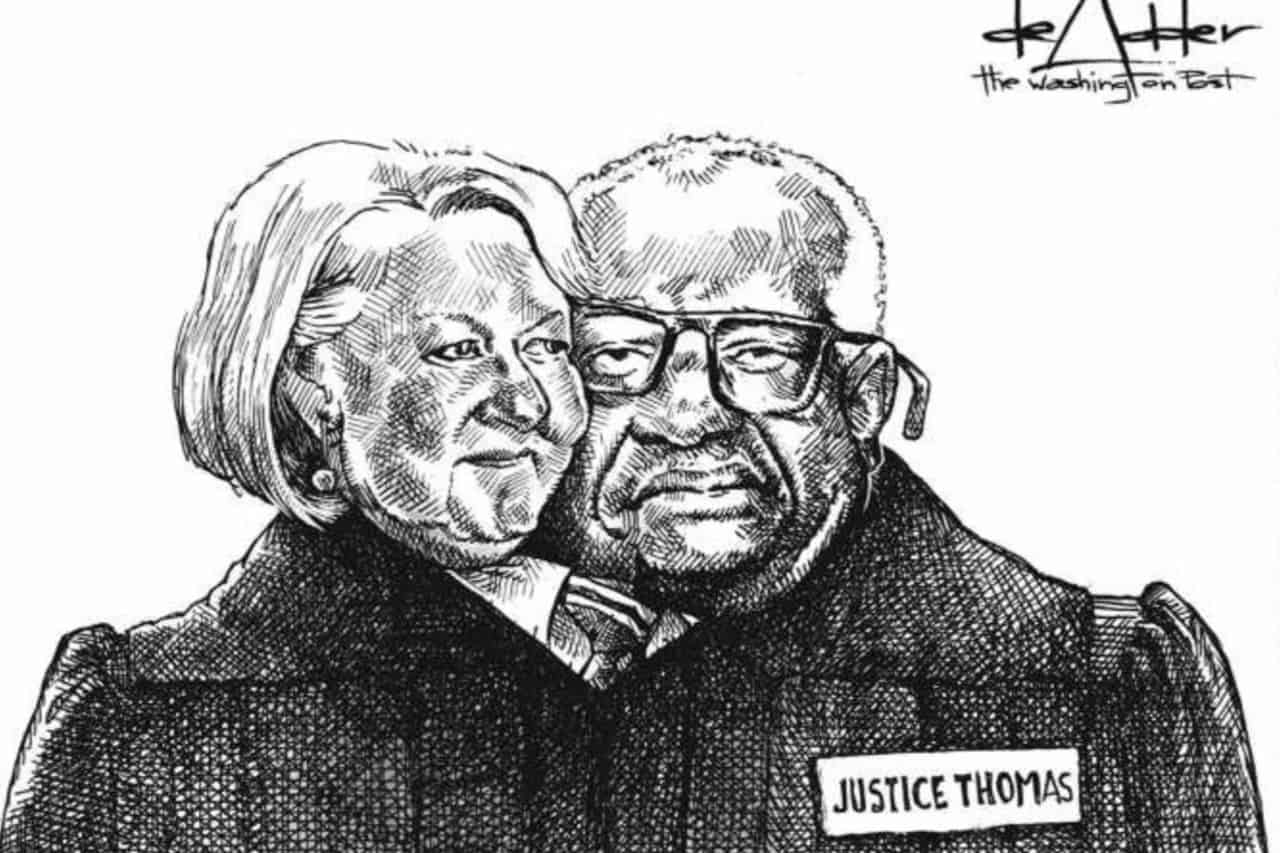“There are no rules in war.” Is that Ginni Thomas speaking or Putin? It is hard to tell.
Virginia (Ginni) Thomas is the wife of Supreme Court Justice, Clarence Thomas. Yes, the Justice accused of sexually harassing Anita Hill in 1991. And, yes, he was the only Justice of the nine that dissented as the Supreme Court rejected Trump’s bid to block the release of his Presidential records. And, no, he provided no explanation for why he would have approved Trump’s request which is considered a standard omission. “There are no rules in war,” we can hear Ginni muttering.
Clarence Thomas, appointed by George H. Bush, was touted as a “true conservative” and, although he is an African American, his appointment was seen as a joke that he replaced Thurgood Marshall. Marshall had been a civil rights icon and the first African American justice on the Supreme Court. Thomas had limited experience within a controversial tenure and far less experience as a federal court of appeals judge. He fit the bill for the conservative right but was opposed by the NAACP, Urban League, and the National Organization of Women. Thomas was critical of affirmative action and many were suspicious even back then of his position on Roe v. Wade. It is said that Bush, in appointing Thomas, returned to the practice of nominating extreme ideologues for the Supreme Court. And, before that time, does anyone remember the 1987 “Bork Off” political buttons that marked the controversy around Reagan’s nomination and Bork’s eventual rejection? And there it all began.
Along those lines, this week we marked the signing of the Emmett Till Anti-Lynching Act. The NAACP defines lynching as the public killing of an individual who has not received due process under the law. This new law is named for Emmett Till, a 14-year-old African American from Chicago who in 1955 was visiting family in Mississippi. While there, he was tortured and murdered for supposedly “flirting” with a white woman in a grocery store. The anti-lynching act was finally made into law after more than 100 years and 200 failed attempts. It is now a criminal act to lynch someone and is punishable by up to 30 years in prison. Our only question is, why did this bill take so long?
Hundreds of Black people mostly in the south were lynched based on accusations of minor incidences and many were murdered without even committing a crime. The state with the greatest number of lynchings is Mississippi. Lynching has never really stopped in the United States as it may have just taken on different forms. Again, we ask, why has it taken so long to pass this bill?
Today, we see this country fighting the same old fight as we await the vote on the Ketanji Brown Jackson nomination to the Supreme Court. While we wait, we ponder how much the world has changed and how much it has stayed the same. We are hoping that, as we have seen the Trump antics pull us apart, Putin’s atrocities will help bring us together as a country. For a moment, we imagined a shift back to more civility. We envision neighborhoods coming together with the start of a new transformation like that after WWII. We envision a sort of revolution of peace and understanding. Let us hope this revolution is right around the corner.
Pictures of the Day:


This blog is dedicated to the over 4000 persons who died from lynchings in the 12 Southern states from 1877 to 1950. And, to those beyond that date.



